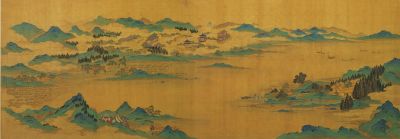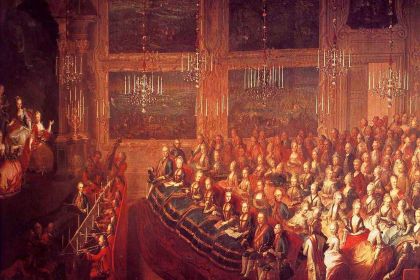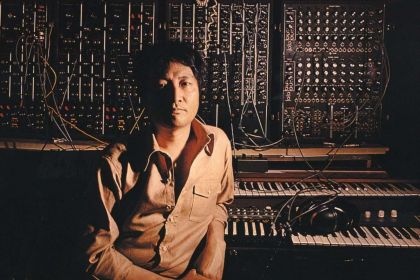ORCHESTRA
Traditions of 3 countries woven into the music of neglected Asian composer Chiang Wen-Yeh

Ode on Shanglin Park by Qiu Ying
Music Period: 20st Century Classical
Composer: Chiang Wen-Yeh (江文也)
The life path of the prominent Asian composer Chiang Wen-Yeh is closely connected to the three countries—Taiwan, Japan, and China—which lively traditions were woven into his music based on Western classical theory. Born in Taiwan, he was educated in Japan and moved to China where, like many artists, he was persecuted by the Cultural Revolution.
He was born in 1910 into a Chinese family in Taiwan which was under Japanese rule at the time. At the age of thirteen, he moved to Japan, where he received a degree in electrical engineering, but his interest in music led him to attend the evening classes of the Tokyo Music School, where he received theoretical knowledge and was also taught piano and vocals.
It was the vocal music that became the starting point of Chiang Wen-Yeh's career. After joining the Opera Company as a baritone singer, Chiang also signed a contract with the Columbia Record Company in 1932. Around the same time, he showed intense interest in composition, taking private lessons from prominent Japanese composers Kosaku Yamada and Kunihiko Hashimoto.
Chiang Wen-Yeh had already gained fame as a composer when in 1936 his orchestral piece Formosan Dance was singled out at the art competition at the Berlin Summer Olympics, triggering a number of publications of his music in Europe and the US. In the early 1940s, his music allowed him to grow into one of the most performed composers of wartime Japan.
Listen to Mountaineers' Song from The Song of Ali Mountain performed by Leonid Nikolayev with Moscow Conservatory Orchestra:
Chiang Wen-Yeh's Chinese roots made him a politically important person during the Second Sino-Japanese War when the Japanese government sought to introduce the composer to both nations by appointing him a professor of musical arts at the Teacher's College in Beijing. After the capitulation of Japan in 1945, he decided to settle in Beijing but, having lost Japanese citizenship, quickly disappeared from the music scene.
Soon life in China turned into a complete nightmare for the composer who became an object of persecution after the communists seized power. He was proclaimed a traitor working for the aggressor as well as an adherent of Western culture.
Having almost completely stopped writing, he cherished the dream of emigrating to Taiwan, but, unfortunately, these plans did not come to fruition. By the early 1980s, the composer's honor was finally restored and in 1983 he died of a stroke.
Chiang's life became a theme for the 2003 Japanese drama Café Lumière directed by a Taiwanese director Hou Hsiao-Hsien. The soundtrack featured Chiang Wen-Yeh's most important works, and his wife and daughter were cast to play to themselves.



